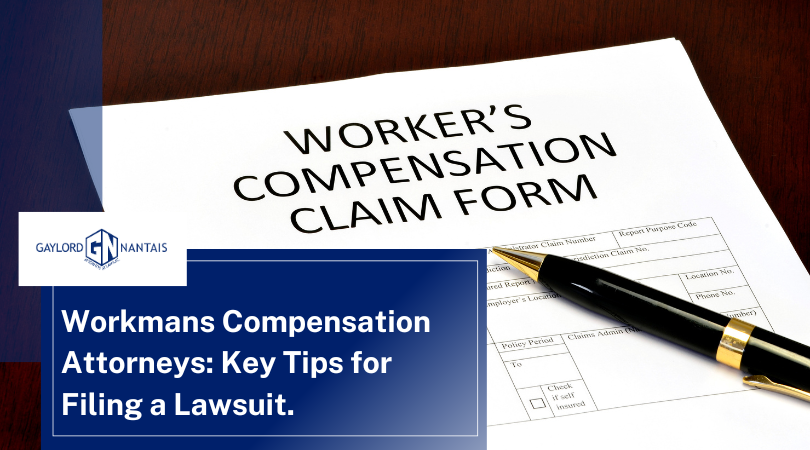Differences You Need to Know – Technologist
When it comes to planning for the future of your home, you want to ensure that your property ends up in the right hands. As a homeowner in Houston, you’re probably wondering about the best way to pass property ownership in the future. You need to know about the right of survivorship vs will, but how do you know which option is best for you?
We’re going to break down the differences between these two legal tools in a way that’s easy to understand so you can make an informed decision about your home’s future.
Whether you’re thinking about passing your property to a loved one or ensuring it’s protected for generations to come, we’ll walk through what each of these options means and how they apply to your situation. Let’s get started by exploring why this choice matters and how it can affect your family’s security and peace of mind.
Types of Ownership Arrangements That Have Right of Survivorship in Texas
When you’re planning for the future of your property, knowing which ownership arrangements include the right of survivorship can help you make informed decisions.
In Texas, there are several ways you and your co-owners can hold property, and each option has different implications for what happens when one owner dies. Let’s take a closer look at the types of ownership arrangements that offer the right of survivorship and how they might impact your estate planning strategy.
Joint Tenancy with Right of Survivorship
One of the most common ownership structures with the right of survivorship is joint tenancy. In this arrangement, two or more owners hold equal interest in the property.
When one joint tenant dies, their share of the property automatically transfers to the surviving joint tenant(s) without the need for the probate process. This can help avoid delays in property transfer and ensure that the surviving owners maintain full control over the property.
However, all joint tenants must have equal ownership and equal rights to the property.

Community Property with Right of Survivorship
In Texas, married couples have a unique option called community property with the right of survivorship.
This ownership arrangement allows a married couple to jointly own property while giving the surviving spouse complete ownership of the property when the other spouse dies. It’s an efficient way to transfer real estate property or other jointly held assets without involving probate court.
With this arrangement, the property automatically transfers to the surviving spouse, bypassing the legal process typically involved in estate administration.
Survivorship Deeds
Another method of ensuring the right of survivorship is through a survivorship deed. This type of deed creates joint ownership of the property, stating that upon one owner’s death, the remaining owner automatically receives full ownership of the entire property.
This is a straightforward estate planning tool for those who want to avoid the probate process. A survivorship deed clearly outlines who the property belongs to when one joint owner passes away, making it an important part of your estate plan.
Joint Bank Accounts with Right of Survivorship
The right of survivorship doesn’t just apply to real estate property. It can also be found in jointly held bank accounts. When you open a joint bank account with a co-owner, the surviving owner has access to the full account balance if the other account holder dies.
This is an efficient way to ensure that funds in the account are available to the surviving owner without going through probate court. This type of ownership automatically transfers the assets, making it a popular option for family members or married couples.
Co-Ownership and Real Property
In Texas, co-owners of real property who want to ensure that the property passes directly to the remaining owner upon death may choose:
- Joint tenancy with the right of survivorship
- Community property with the right of survivorship
These ownership structures help to avoid probate and provide clear ownership rights to the surviving co-owner.
Understanding these different ownership arrangements can greatly affect how you plan your estate. Each option has its advantages, depending on your relationship with your co-owners and your goals for the future of your property.
Working with a real estate attorney can help you choose the right structure for your specific needs.
At Jarrett Law, our experienced real estate attorneys can help secure your property and financial future. Contact us today online or at (832) 831-0833 for a consultation and find out how to pass property outside of probate court.
Why Pass Ownership Interests Outside of a Last Will
When we think of estate planning, most of us imagine that a last will is the primary way to pass on our property.
However, there are some compelling reasons to pass ownership interests outside of a will. Doing so can provide benefits like avoiding probate, simplifying property transfer, and ensuring that your surviving loved ones have immediate access to assets.
Let’s explore why using methods like the right of survivorship or other estate planning tools can pass property to your heirs without involving a will.
Avoiding Probate
One of the main reasons you might want to pass ownership interests outside of a will is to avoid probate. Probate is the legal process of settling a deceased owner’s estate, which can take time, cost money, and cause delays in transferring property to your heirs.
By setting up ownership arrangements such as joint tenancy with the right of survivorship, you can ensure that your surviving owner receives the property immediately upon death. The property title passes automatically to the remaining joint tenant without going through probate court.
This can be especially useful to ensure your spouse or other joint owners can access the property immediately.

Immediate Transfer of Property
When property is passed through a last will, the heirs often have to wait for the probate process to be completed before taking ownership.
If you set up joint property ownership with the right of survivorship, your surviving joint tenant will automatically receive full ownership upon your passing. This avoids the waiting period associated with probate and gives your loved ones instant access to jointly owned assets, whether it’s real estate or personal property.
For example, if you and your spouse own a home together under joint tenancy, your spouse will immediately become the sole owner of the home when you pass away, ensuring that the property remains in their hands without legal complications.
Minimizing Estate Taxes
Passing ownership interests outside of a will can also help reduce estate taxes in some cases.
While not all estates are subject to estate taxes, depending on their value, there can be tax implications when property is passed through a will. Certain ownership structures, like joint tenancy or community property with the right of survivorship, may offer opportunities to minimize estate taxes by ensuring that property transfers to the surviving tenant without being taxed as part of the deceased owner’s estate.
Consulting with a real estate attorney can help you understand how to structure your assets to reduce any potential tax burden for your heirs.
Simplicity and Peace of Mind
If you prefer to keep your estate plan as simple as possible, passing ownership interests outside of a will can provide peace of mind.
You can use estate planning tools such as survivorship deeds, joint tenancy agreements, or a revocable living trust to ensure your property automatically transfers to your chosen co-owner or beneficiary. This means you won’t need to rely solely on a will to distribute your assets.
Without passing property through a will, the process is easier for your loved ones after your passing. Having an ownership structure bypassing probate lets you provide your surviving spouse, co-owners, or family members with a straightforward path to take over your property.

Avoiding Legal Disputes
Passing property outside of a will can also help reduce the risk of legal disputes after your death. Sometimes, when a will is the primary estate planning document, disagreements can arise over who should inherit which assets, especially when it comes to valuable real estate or jointly held properties.
With joint tenancy or right of survivorship, the ownership rights are clearly defined. The surviving joint tenant automatically becomes the sole owner of the property, leaving little room for disputes over the property title.
This can be a particularly effective way to ensure that your property ends up in the hands of the person or people you intended.
When it comes to estate planning, you have options. Passing ownership interests outside of a will may not be the right choice for everyone, but it offers significant advantages for those who want to avoid probate, ensure immediate transfer of property, and simplify the legal process for their loved ones.
By considering your specific needs and working with a real estate attorney, you can develop a strategy that ensures your property passes according to your wishes, without unnecessary legal hurdles.
Jarrett Law Handles All Your Real Estate Property Interest Issues
At Jarrett Law, we understand how overwhelming real estate issues can be. Whether you’re dealing with a title dispute, a lien on your property, or concerns about co-ownership, these challenges can feel like they’re never-ending. That’s where we come in.
Our focus is to represent your interests and guide you through the complexities of property ownership. You don’t have to navigate this alone, and with us on your side, you’ll have the legal insight needed to protect your financial investment.
Resolving Title Disputes and Property Liens
One of the most common issues property owners face is title disputes or liens on their property. Maybe you’ve discovered a past owner didn’t clear a lien, or a mechanics lien has been placed against your property for unpaid work.
These situations can affect your ability to sell or transfer your property. We’ll help you clear any disputes or liens, so you can regain control of your real estate without the worry of hidden financial traps.
At Jarrett Law, we understand that every minute counts when it comes to resolving these issues, and we’ll make sure to act quickly and effectively on your behalf.

Protecting Your Property Interests During Sale or Purchase
Buying or selling a property is one of the most significant financial transactions you’ll make. When you’re dealing with large sums of money and intricate legal contracts, it’s easy to feel overwhelmed.
We’ll ensure that your interests are protected at every stage of the process, whether you’re finalizing a purchase agreement or negotiating co-ownership details.
With Jarrett Law on your side, you won’t have to worry about missing critical clauses that could put you at risk for future legal issues. We will walk you through the contract step by step to help you make informed decisions and avoid costly mistakes.
Defending Against Foreclosure and Lender Disputes
Foreclosure is one of the most stressful situations any homeowner can face. If you’re falling behind on mortgage payments or struggling with a dispute with your lender, you need someone who is focused on protecting your interests.
We’ll review your options, from loan modifications and deferments to foreclosure alternatives such as third-party buyer programs.
At Jarrett Law, we negotiate on your behalf and ensure your lender isn’t taking advantage of you. Whether it’s a cash-for-keys program or another alternative, you’ll have the support and guidance to avoid foreclosure and protect your home.
Fighting for Your Rights in Property Ownership Disputes
Disputes over real estate ownership can arise in various forms, whether it’s a co-ownership issue, a neighborhood boundary disagreement, or a problem with your HOA. We believe every property owner has the right to defend their interest in the property they own.
If you’re dealing with an aggressive co-owner, a title challenge, or even back property taxes threatening your ownership, we’ll step in and fight for your rights. We’ll guide you through the legal process and ensure your voice is heard every step of the way.
Your Real Estate Legal Partner
At Jarrett Law, we are more than just legal representatives. We are your partners in protecting your real estate property interests.
With our team’s vast experience in real estate law, we’ll help you navigate the legal landscape and find solutions that work for you. Whether it’s defending your home from foreclosure, clearing a lien, or ensuring a smooth property sale, we’re here to take on the challenges with you.
Contact us today online or at (832) 831-0833 for a consultation, and let us help you secure your property and financial future.


